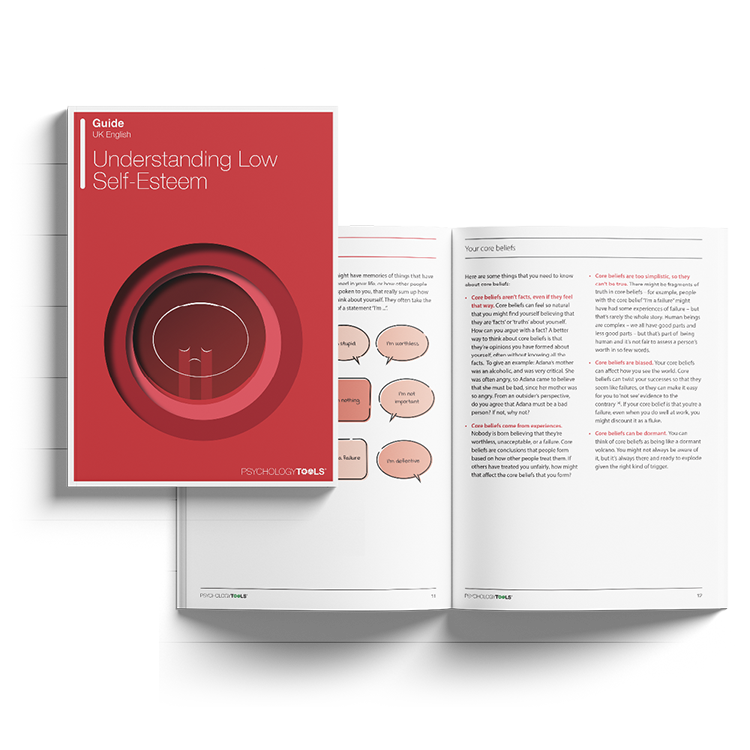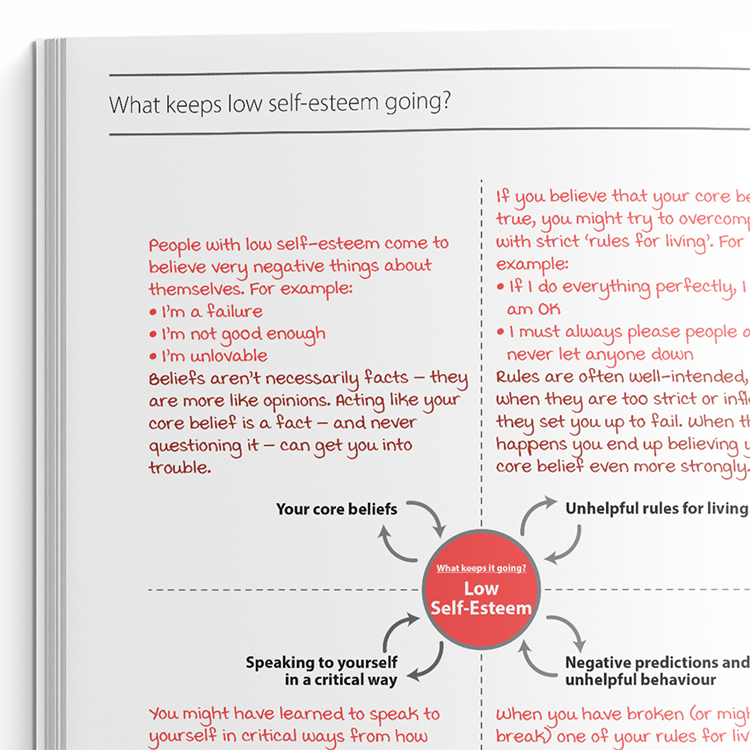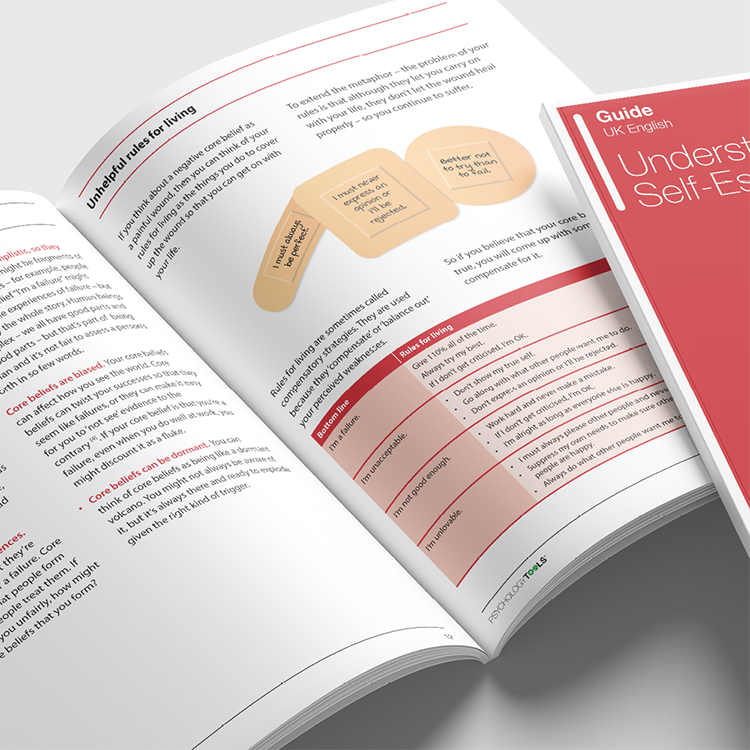Guide (PDF)
A psychoeducational guide. Typically containing elements of skills development.
An accessible and informative guide to understanding low self-esteem, written specifically for clients.

A psychoeducational guide. Typically containing elements of skills development.
To use this feature you must be signed in to an active account on the Advanced or Complete plans.

Our ‘Understanding…’ series is a collection of psychoeducation guides for common mental health conditions. Friendly and explanatory, they are comprehensive sources of information for your clients. Concepts are explained in an easily digestible way, with plenty of case examples and accessible diagrams. Understanding Low Self-Esteem is designed to help clients with low self-esteem understand more about their condition.
This guide aims to help clients learn more about low self-esteem. It explains what low self-esteem is, what the common signs and symptoms are, and effective ways to address it, such as cognitive behavioral therapy (CBT).
Designed to help clients understand and learn more about low self-esteem.
Identify clients who may be experiencing low self-esteem.
Provide the guide to clients who could benefit from it.
Use the content to inform clients about low self-esteem and help normalize their experiences.
Discuss the client's personal experience with low self-esteem.
Plan treatment with the client or direct them to other sources of help and support.
Low self-esteem refers to holding a persistently negative view of oneself or not valuing oneself highly. Clients with low self-esteem may experience social anxiety or low mood, hold beliefs that they are incapable or inadequate, and engage in harsh self-criticism. While some individuals recognize that they judge themselves unfairly, others may view their negative self-beliefs as absolute truths.
Low self-esteem is a common difficulty and can increase vulnerability to a range of other mental health problems, including depression and anxiety. Encouragingly, there are evidence-based psychological interventions that can help clients to improve their self-esteem and develop a more balanced view of themselves.

Just enter your name and email address, and we'll send you Understanding Low Self-Esteem (English US) straight to your inbox. You'll also receive occasional product update emails wth evidence-based tools, clinical resources, and the latest psychological research.
Working...
This site uses strictly necessary cookies to function. We do not use cookies for analytics, marketing, or tracking purposes. By clicking “OK”, you agree to the use of these essential cookies. Read our Cookie Policy